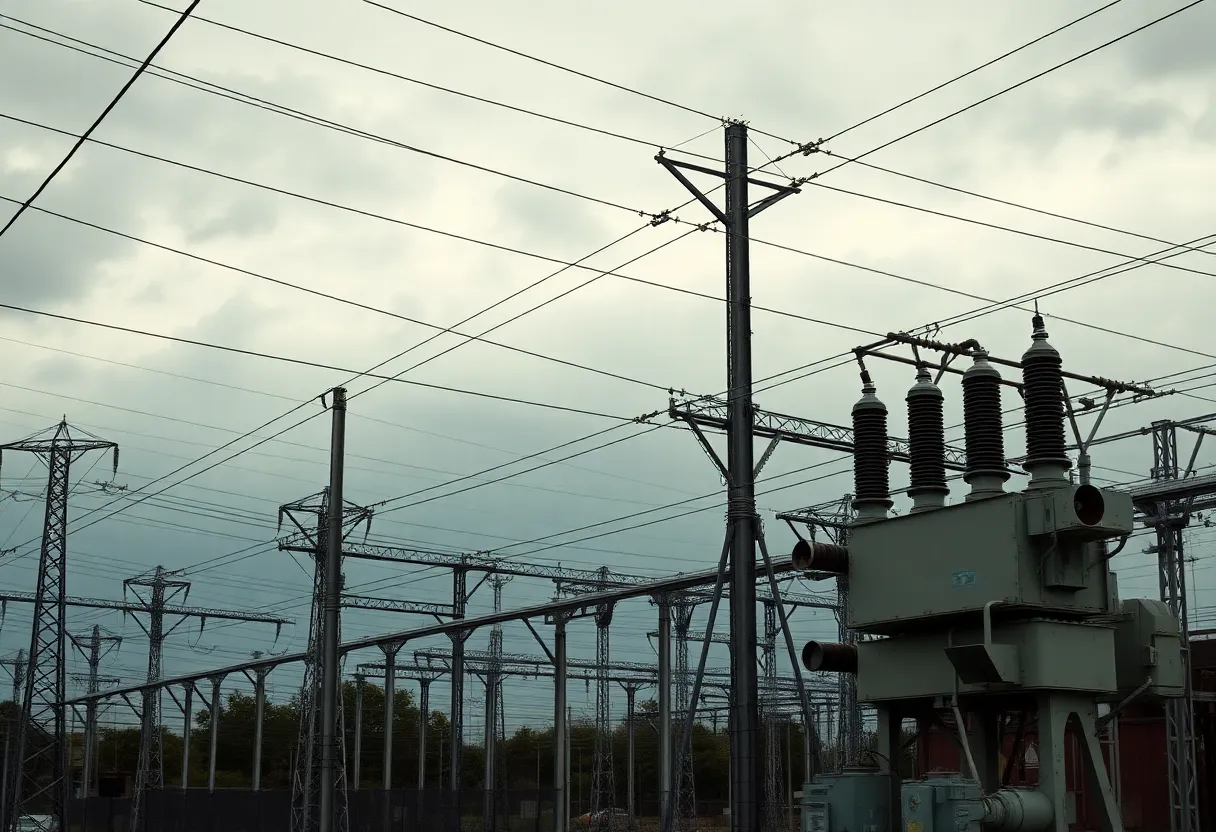

A modern power grid designed to withstand extreme weather events and ensure continuous energy supply.
Want to target the right audience? Sponsor our site and choose your specific industry to connect with a relevant audience.
Prominent brand mentions across targeted, industry-focused articles
High-visibility placements that speak directly to an engaged local audience
Guaranteed coverage that maximizes exposure and reinforces your brand presence
Interested in seeing what sponsored content looks like on our platform?
May’s Roofing & Contracting
Forwal Construction
NSC Clips
Real Internet Sales
Suited
Florida4Golf
Click the button below to sponsor our articles:
Sponsor Our ArticlesU.S. Senator Gary Peters has proposed the Preventing Power Outages Act to enhance power grid resilience in Michigan and nationwide. The act seeks to modernize infrastructure, secure funding for upgrades, and improve reliability amidst extreme weather events. Highlighting the outdated status of Michigan’s power grid, it aims to address community energy demands and rising costs while supporting low-income households through state programs. The legislation underscores the urgency of proactive investments to safeguard energy access during crises.
Detroit, Michigan – U.S. Senator Gary Peters has introduced the bipartisan Preventing Power Outages Act, aimed at strengthening the resiliency of power grids both in Michigan and across the nation. This legislation seeks to modernize grid infrastructure to ensure continuous power during extreme weather events and natural disasters, addressing growing concerns about reliability.
The Act aims to reauthorize two U.S. Department of Energy grant programs that support states and utilities in modernizing their grid systems. Senator Peters emphasized the critical need for these upgrades, particularly in light of the recent catastrophic ice storm that affected Northern Michigan and the Upper Peninsula, where thousands of residents lost power for weeks.
Peters noted that much of Michigan’s power infrastructure is outdated and requires significant improvements to enhance safety, reduce energy costs, and meet the increasing demands of the community. The Michigan Public Service Commission (MPSC) has already seen a $154 million rate increase for Consumers Energy, which was less than the initially requested $325 million. The average monthly bill for Consumers Energy customers is now $102.45, a sharp increase from $72.70 a decade ago, reflecting rising energy costs in the state.
In recent years, Consumers Energy has managed to decrease the average outage duration from 176 minutes in 2023 to 155 minutes in the previous year. For 2024, the utility has allocated $63.5 million for energy projects and has worked on clearing 7,000 miles of vegetation along power lines to prevent outages. In total, the MPSC has approved over $800 million in rate increases over the past decade, resulting in an average customer rate increase of more than $22 per month.
The senator also pointed out that investing in grid resilience upfront is more cost-effective than dealing with the expenses associated with recovery after storms. Peters’s legislation aims to prolong federal grant programs that have provided over $120 million for improvements to Michigan’s grid, set to expire next year.
The MPSC is actively working to enhance the reliability of the electric grid, conducting audits of utilities such as DTE Electric and Consumers Energy. Recent reports indicate a positive trend in service restoration, with Consumers Energy indicating that 93% of outage instances were restored within 24 hours in 2024. Furthermore, DTE Electric has announced a remarkable 70% reduction in customer outage time compared to the previous year.
To support low-income households, the MPSC awarded $54 million in grants through the Michigan Energy Assistance Program (MEAP). The program’s expanded eligibility criteria may now assist up to 335,000 households each year, significantly increasing its impact compared to previous years.
The MPSC has also focused on enhancing community engagement, holding meetings and attending events to improve public involvement in utility regulations. Additionally, under the new Public Act 233 of 2023, which takes effect on November 29, 2024, the Commission has established new responsibilities for the siting of utility-scale wind, solar, and energy storage facilities.
Senator Peters’s proposed legislation and the MPSC’s ongoing efforts highlight a commitment to improving Michigan’s energy infrastructure and ensuring that residents have reliable access to power, especially in times of crisis. With extreme weather becoming more common, such initiatives are crucial for the state’s energy future and the safety of its residents.
News Summary Michigan Republicans have filed a lawsuit against Secretary of State Jocelyn Benson for…
News Summary Timber Cannabis, a Michigan marijuana dispensary chain, has agreed to pay $205,000 to…
News Summary A U.S. District Judge in Three Rivers, Michigan, has approved a $205,000 settlement…
News Summary Lila MacLellan has been appointed as a senior writer for Fortune, focusing on…
News Summary Dave's Hot Chicken has made headlines after selling 70% of its business to…
News Summary The U.S. rental market has shown a slight decline in median asking rents,…